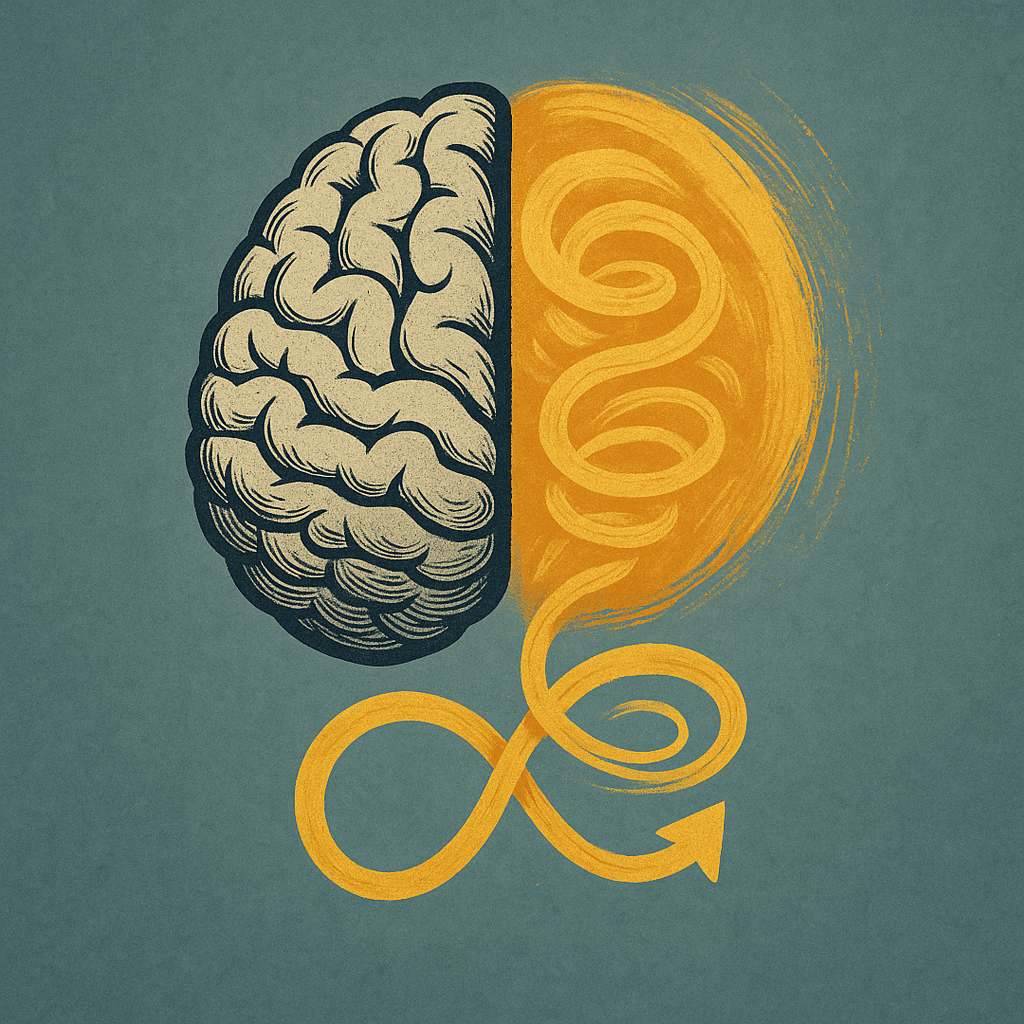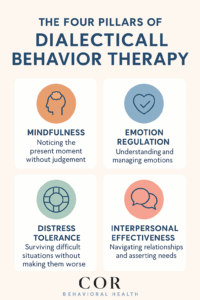
You’re Still Here—But You’re Not Sure Why It Feels This Flat
You’ve done the hard part. You showed up, did the work, stayed sober. And yet—lately, it feels… quiet. Not peaceful quiet. More like emotionally muted, spiritually tired, kind of quiet.
That doesn’t mean you’re failing. It means you’ve hit a deeper layer.
And if that rings true, it might be time to revisit tools that aren’t about survival—but about reconnection. Tools like DBT can just do that.
Recovery Doesn’t End at 12 Months
Milestones don’t guarantee meaning. For many alumni, the first year is about not falling apart—and the second is about realizing you’re still missing something.
If you’ve been white-knuckling emotional triggers or slipping back into old coping habits (even “sober” ones), that doesn’t make you weak. It makes you human.
And it means you might need a different kind of support.
DBT Isn’t Just for Crisis Anymore
Dialectical behavior therapy (DBT) was originally developed for people dealing with intense emotional swings and self-harm. But today, it’s used far more widely—and for good reason.
DBT teaches emotional regulation, distress tolerance, and mindfulness in ways that feel surprisingly usable for people already deep in their recovery.
At COR, we often recommend DBT for alumni who aren’t in immediate danger—but who feel disconnected from themselves, their emotions, or their relationships.
Dual Diagnosis Can Still Be Driving the Disconnection
Sometimes the plateau isn’t just emotional—it’s clinical.
If you’ve been in recovery for a while but still feel anxious, depressed, or emotionally out of sync, it could be that a dual diagnosis was missed or is resurfacing.
At COR, we help long-term alumni manage dual diagnoses like:
- Depression + alcohol use disorder
- Anxiety + stimulant use
- Bipolar disorder + trauma history
- ADHD + emotional dysregulationDBT is especially effective in these layered cases—where both mental health and recovery need to be supported without judgment.
You Can Go Deeper Without Starting Over
One of the biggest misconceptions about seeking support later in recovery is the fear that it’ll feel like “going back to square one.”
But DBT isn’t about rehashing your early steps. It’s about equipping you to live more fully in the now.
You’re not broken. You’re just ready for something more real—and less performative.
Skills You Might Actually Use This Time
DBT is practical. It’s built on four pillars:
- Mindfulness – not just “staying present,” but noticing without judgment
- Emotion regulation – understanding your feelings so they don’t own you
- Distress tolerance – how to survive painful moments without self-destruction
- Interpersonal effectiveness – having boundaries without shutting down
Whether you’re managing difficult relationships, feeling emotionally distant, or just craving deeper peace, DBT gives language to the vague discomfort many alumni live with.
It’s Not About Needing Help. It’s About Wanting More.
You’re not in crisis. That’s the point. You’re stable enough to notice the emotional flatness—and honest enough to admit it’s not what you want.
That’s the sweet spot where growth happens.
And that’s where DBT comes in.
📞 Call (888) 231-7973 or visit our dialectical behavior therapy services in Hobe Sound, Florida to learn how we support long-term alumni ready for their next chapter. You don’t have to be falling apart to want something better.





